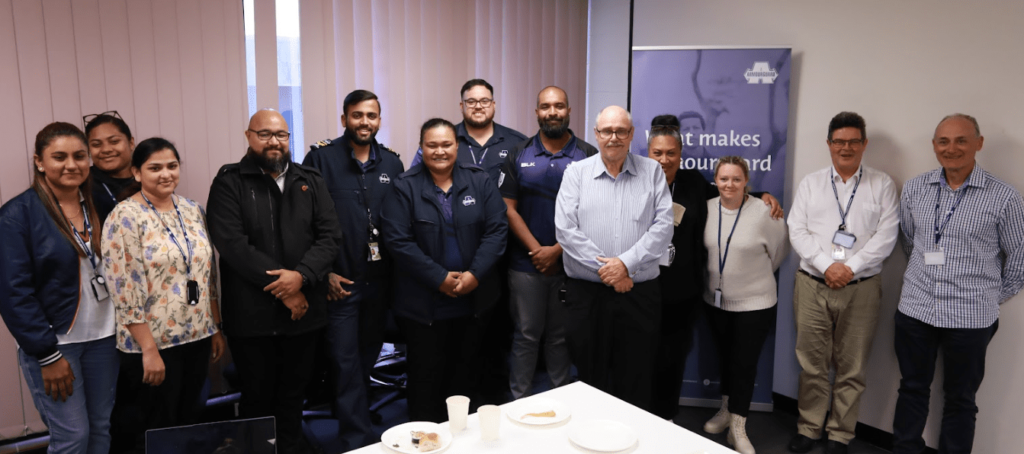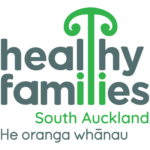
Above: The Armourguard Security team
Armourguard Security has recently launched a new focus on workplace wellbeing in their Auckland branches. The national security firm is actively engaging with their staff to encourage them to raise their wellbeing issues and concerns as part of a new wellbeing initiative.
“We’ve realized that all staff need to feel valued, and workplace wellbeing is so important at Armourguard,” says Stuart Morgan, National Risk & Compliance Manager.
“That’s been the whole thrust of our work with Healthy Families South Auckland (The Cause Collective). Today, we’ve launched a series of methods for our staff, including a wellbeing committee, to make people feel comfortable about how they think their workplace wellbeing can be enhanced.”
Armourguard is one of New Zealand’s largest national security firms and employs approximately 350 staff across its Auckland branches. The wellbeing initiative aims to encourage feedback from staff so they can raise issues, ideas, and solutions to help enhance wellbeing within the workplace.
“We’ve got suggestion boxes at our Auckland branches and a generic email address that they can email us, too. We’ve got committee members considered as ‘champions,’ and they will go out and reach our frontliners. Hopefully, they can convince them to give us their recommendations, and we will consider them to make appropriate changes,” says Stuart.
For the past two years, Healthy Families South Auckland (The Cause Collective) has been working with Armourguard as part of the Workplace Wellbeing Ecology (WWE) initiative to identify, test, and refine approaches to improving health and wellbeing within their business. WWE focuses on South Auckland-based businesses with a high number of Pacific and Māori employees, as they are overrepresented in workplace injury statistics.
For Ursula Curry, (Samoan) Senior Supervisor, Kaiwhakahaere Matua at Armourguard, the journey with WWE has been ‘amazing’ as she was part of the initial core team.
“It’s good that we’ve finally launched the wellbeing committee so that we can hear what our workforce has to say and their input about what may need to be done and improved,” she says.
“It’s important that we can move forward with this so that we can help them with any personal hardships or anything that needs to be improved onsite as we can’t be there 24/7. Any feedback from them will be excellent so we can make it better for them,” says Ursula.
Nicola Dennison, Programme Manager for Workplace Wellbeing Ecology, is delighted to have reached the prototype and learning phase (phase 4) of the initiative.
“This has been a couple of years in the making. We did design workshops online via Miro and Zoom. For a company like that to do it online, it says a lot about their desire to do whatever it takes to improve wellbeing for Armourguard, so it’s exciting,” she says.
“What I hope they’ll achieve is that they’ll establish a strong feedback loop between staff and senior management, in the process be able to amplify the workers’ voice by having consistent two-way communication. It will also allow the committee to have a better understanding of wellbeing solutions at Armourguard.”
“Prototyping and testing give us a starting point of how it can influence systems change within the Armourguard business. So, whether it’s policy, resources, or mindsets of people that need to be influenced, this prototyping phase will help us identify, test, and refine the wellbeing approach before it can be scaled to other parts of the business,” says Nicola.
Workplace Wellbeing Ecology follows a five-step design phase that involves bringing together frontline staff and executive leadership to co-design innovative solutions. The five steps include the formation of a core team (phase 1), building the evidence base (phase 2), designing for change (phase 3), prototype and learning (phase 4), and developing for scale and sustainability (phase 5).
The Armourguard wellbeing launch took place in April 2023, and prototyping and testing are to be completed by mid-July 2023.



